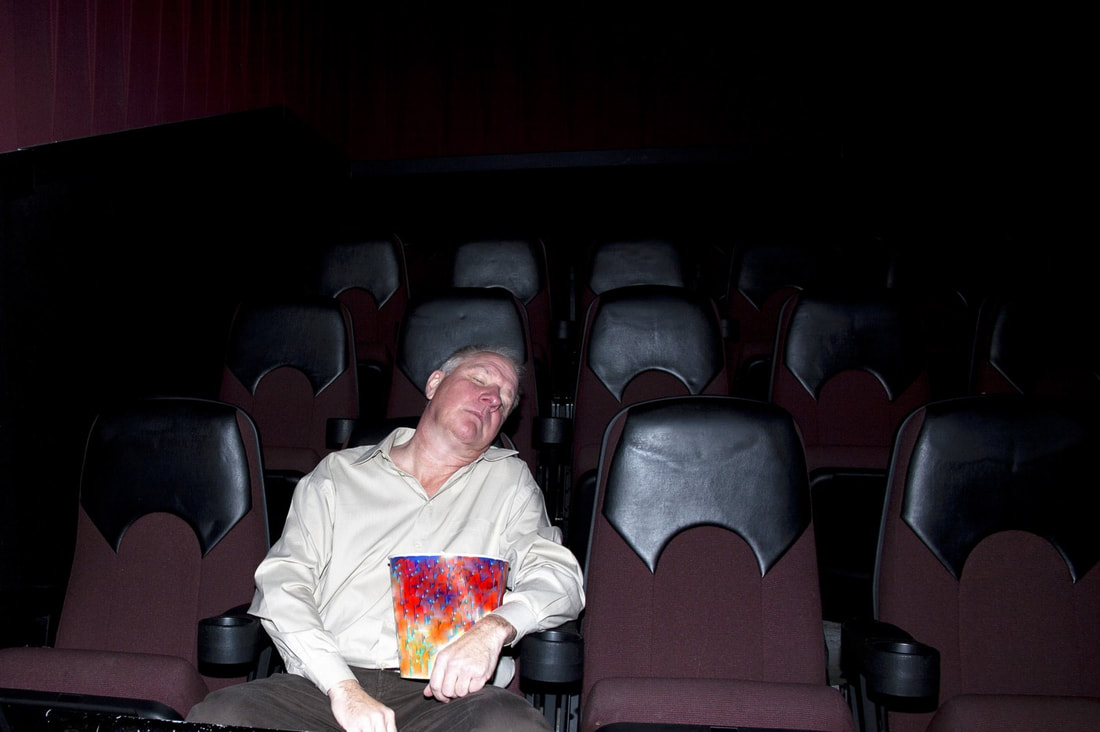
Stéphane Lafleur’s 2022 Film Viking has an ingenious premise that opens the door to an entirely different way of rendering characters and dialogue. It begins with a group of astronauts who are about to land on Mars. In order to anticipate the myriad of problems they might run into, the government has hand-picked 5 civilians and placed them in a simulated Mars station somewhere in a desert on Earth. Each civilian has been carefully picked according to whether their personality and temperament matched one of the astronauts. The civilians on Earth are to be stand-ins for their counterparts up on Mars.
The five civilians are locked away together, and each day, a little machine that resembles HAL from 2001 spits out a small note for each of them to read in private. The notes provide them with different emotional states, motivations, and moods that they must act out. Things like, “Bad Sleep. Machine Noise. Really Tired,” “Tired but excited,” or “Head Ache. Bad Mood.”

It sets up a bizarre set of layers, where the movie actors pretend to be civilians who must pretend to be people (astronauts) that they have never met. The astronaut stand-ins find it very confusing. It is difficult for them to discern whether anyone is speaking sincerely or as part of their role. In addition, they might be playing their role “spontaneously”, or they might be following that morning's instructions provided by the machine. All sincerity and genuine feeling are lost in a muddle of alienated performances. They are required to end every verbal exchange with, “I am glad we had this conversation”, which becomes a constant foil that makes us question what came before it. Someone might bear their soul, but then end it with, “I am glad we had this conversation”, leaving us to wonder if it was all just play-acting.

It all ends up calling into question what our “genuine” or “authentic” selves really are. In today's world of self-help, self-care, and psychological navel-gazing, there is an ardent belief that somewhere under it all are our “pure,” “authentic” selves, but there is no such thing. We are all continuously changing intersections of context, emotion, physical states, social interactions, and narratives. If you swept all those things away, there would be nothing left.
It is reminiscent of Philip K. Dick’s short story Do Androids Dream of Electric Sheep? The story opens with a married couple arguing over how they use their “mood organ.” Dick has a way of getting right at the heart of what it means to be human. If we had a machine that could set our moods for us, what would that mean? For Dick, the couple still chooses to argue and snipe at each other, even though they could both simply set the organ to something more peaceful and conciliatory. There is even a setting on the organ that puts you in the mood to, “watch television no matter what is on.” One day, the wife stays home and finds out how to program in “despair”, and now has scheduled an hour of despair every day.
Like In Dick’s story, Lafleur’s five stand-ins are not in control of their moods. As a result, they never fully embody any of the roles they are given. They spend more time in liminal confusion than acting out who they are supposed to be.
They are confused about how to be someone they have never met. They are confused about what to do with their real sense of self. They are confused about how to best serve the experiment, and they all wish that they could have been chosen to be one of the real astronauts up on Mars.
This situation could easily be spun into a disorienting horror film or thriller, but Viking is an absurdist comedy with serious emotional underpinnings. It is played in complete deadpan, with each character stuck in their lane, and trying not to break character.
Lafleur uses this highly artificial situation in several interesting ways. There is the primary plot about emotional turmoil and the self, but he also uses the stunted speech of his characters to satirize corporate culture. Everyone speaks in empty platitudes and uses positive buzzwords in order to promote a pleasant working environment. Corporate speak is another way in which our jobs alienate us from ourselves. We cannot speak plainly or directly. Everything must be an optimistic, diplomatic negotiation.
This reference to the workplace opens the door to another level of interpretation. Viking is also about the loneliness and confusion of the pandemic. These 5 civilians are sealed up in their bunker, unable to do their jobs or socialize with friends. They are cut off from the activities that they used to define themselves with. They are suspended. Somewhere on a distant planet, reality is unfolding, but they can only hear about it.
The pandemic created a strange sleight of hand where we longed for the reality of what was outside our door, but if reality is a shared experience, then reality was what was happening inside our apartments. Our computer screens claimed the empty space left behind by the absence of our lived experience. In Viking, there is a comical scene where two of the stand-ins are dressed up in full space gear, trying to move a buggy that is caught in the sand. While they struggle, two curious cowboys mosey up and offer to give them a hand. It’s a perfect moment of absurdity, reminiscent of Sisyphus. We humans work and toil and pretend that we have purpose, but once removed from the context we created, it all seems meaningless.

There isn’t much information about Stéphane Lafleur on the web. He’s a French-Canadian filmmaker who has made 4 feature films. The films are difficult to find, but here is a list.
2007 - Continental, a Film Without Guns (Continental, un film sans fusil)
2011 - Familiar Grounds (En terrains connus)
2014 - You're Sleeping Nicole (Tu dors Nicole)
2022 - Viking



